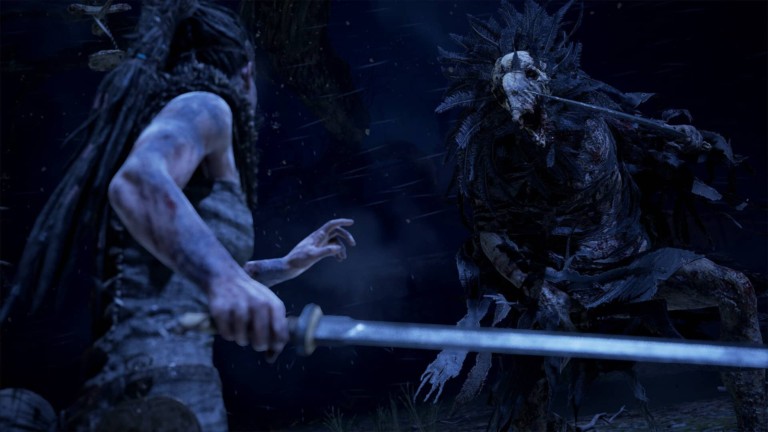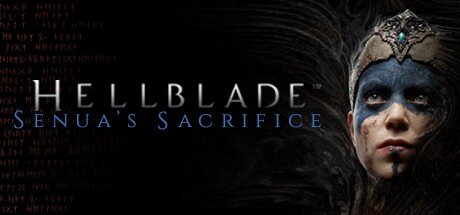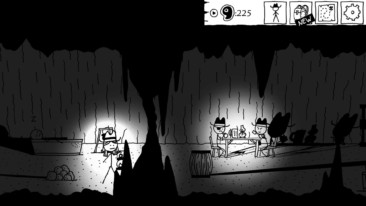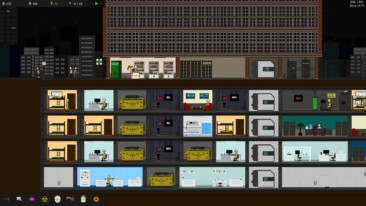Hellblade: Senua’s Sacrifice from Ninja Theory
Hellblade: Senua’s Sacrifice from Ninja Theory is unquestionably one of the most beautiful video games from an independent game studio that I have ever covered. From the team that brought you Heavenly Sword and Enslaved: Odyssey to the West comes a level of production that feels as current and front edge as anything released by the major studios in 2017. The facial and body mocap are incredible. The environments are rich and lit with beautiful numinous qualities. And the sound – comprised by whispering psychotic voices of encouragement and doubt in Senua’s consciousness, like the RBG displacement of one’s inner dialogue – is practically the main feature of the game.
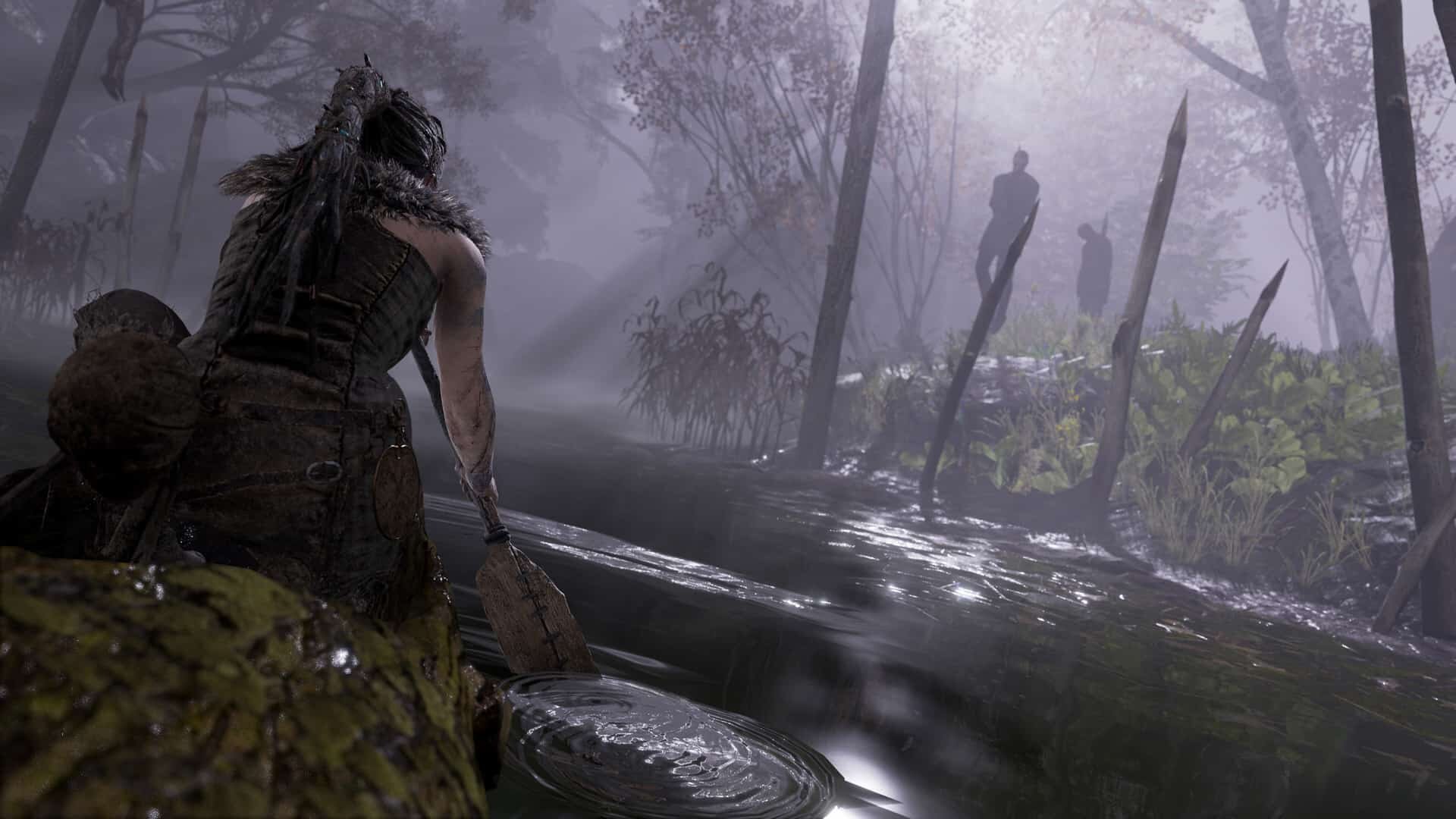
Other Voices
In Hellblade you play the role of a Pict named Senua, a troubled warrior seeking to retrieve her lover from the realm of Hella while contending with the contrasting voices arising from her own psychotic episodes. Are they her own, or do they come from shattered memories or pan-dimenional beings, fallen allies or ancestors? What we do know is that she is on some sort of vision quest, literally facing demons to find the path through the Viking version of Hades.
I will assert right away that this is far from an open world or sandbox game. In fact, at first I wondered if it was a “walking simulator” like Dear Esther or Gone Home. It isn’t; after some 15 minutes of subtly tutorial-centric introduction and cinematics, I started swinging at spectral guardians with satisfying aplomb. I could block, swing high and low, kick-push and so on in a series of moves that likely benefits from design experience with DmC: Devil May Cry, Ninja Theory’s previous hack-and-slash.
Hellish Blades
Here, though, the fighting isn’t super granular twitch combat, but it has its own style. It feels more immediate and can sometimes be straight exasperating as the camera tries to swing into the right position. Ultimately, the fighting never really bothered me, though, and I can chalk up its strange proximity to the fact that I am supposed to reside somewhere close to Senua’s cluttered mind.
Hellblade offer an interesting nexus – sort of a Dark Souls-like-lite, maybe mostly in mood, but also in that if you don’t get things right, you will die permanently, so you must learn and pay very close attention when the time is right. It uses a rather interesting approach to this irreversible death: rather than be simply executed, every time you fail in combat, the creeping “darkness” takes over more of your flesh. Once it reached your brain/mind, it is over. So make your moves very carefully and never stop paying close attention.
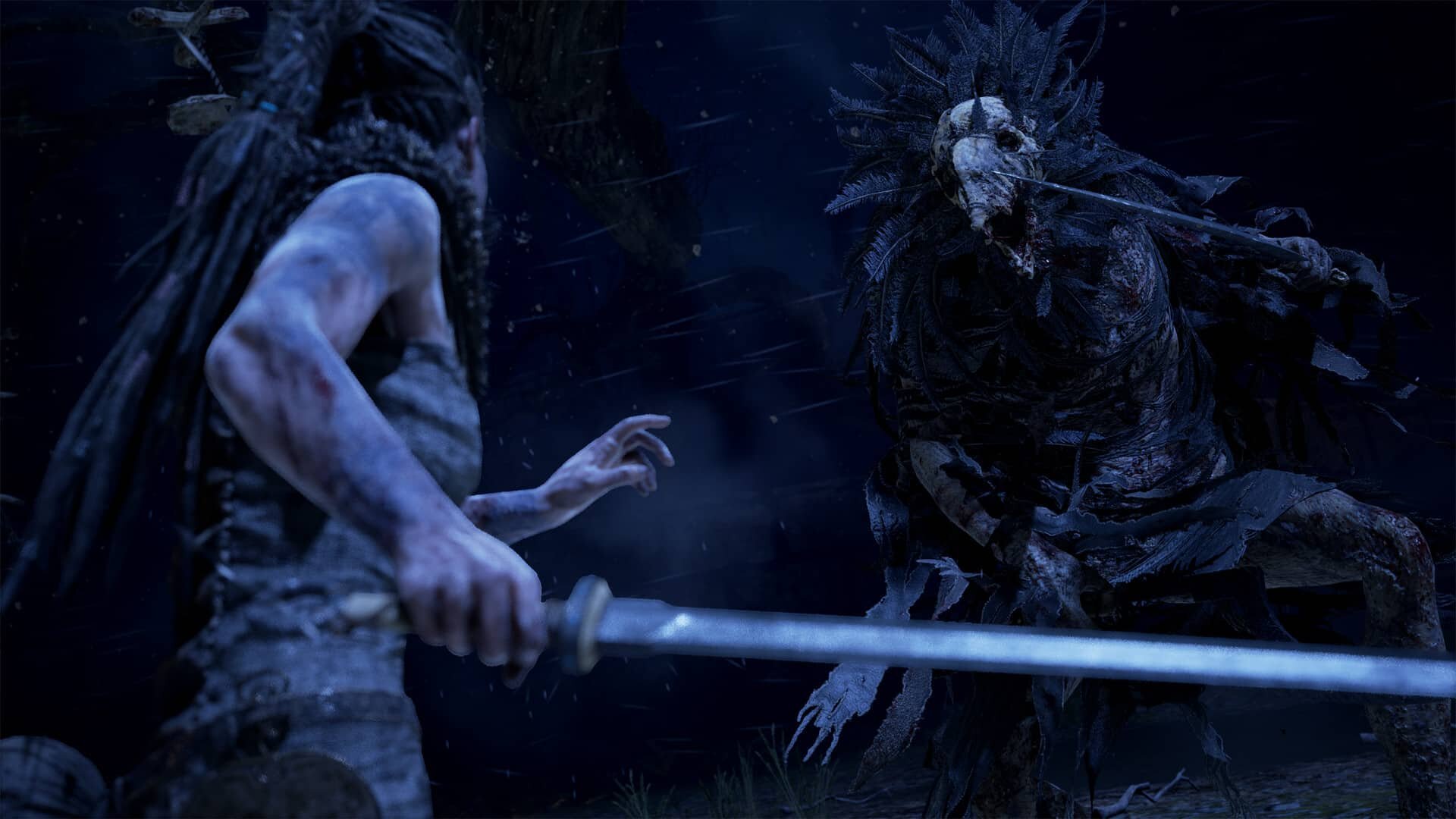
A Long Journey
You cannot save arbitrarily, but only at specific save points. A nice added touch about the save points are the bits of Celtic/Norse mythological lore spoken by some disembodied voice at each station. I tend to feel that save points are a drag, especially when combined with “pixel-perfect” puzzles wherein you must overlay one symbol over another, but being that we are in a 3D world viewed from the perspective of a distraught character who is prone to hallucinations… If you don’t align it exactly right, no cookie for you. I tend to find such obstacles tedious at best and hardly rewarding in any context, so this is big minus for me.
That said, Hellblade is rife with atmosphere and complex tone maintained throughout every level, enemy design and cinematic. Character motion feels smooth and fairly intuitive although, having spent too much time in VR lately, I actually wished sometimes that I could just teleport across the long stretches of track I had to often slog through (or get a power pellet to speed up the jog).
Pict-ure Perfect
The music, sound design and voice acting are superb, and I applaud the developers for attempting something new by putting you directly inside the character’s mind as she contends with her mental illness. I strongly recommend playing this game with headphones, as the swirling voices – and the immersion that comes from the various psycho-acoustically-designed depths of near and far entities coercing and cajoling you – forms such a crucial part of this experience.
This professionally researched approach to mimicking the effects of psychosis – Hellblade in fact credits a psychologist in the title credits for their assistance in getting this right – could help to build understanding and compassion for those who do suffer from the spectrum of related mental conditions. I have people in my own life who have attempted to express the symptoms and effects of their own experiences with such manifestations.
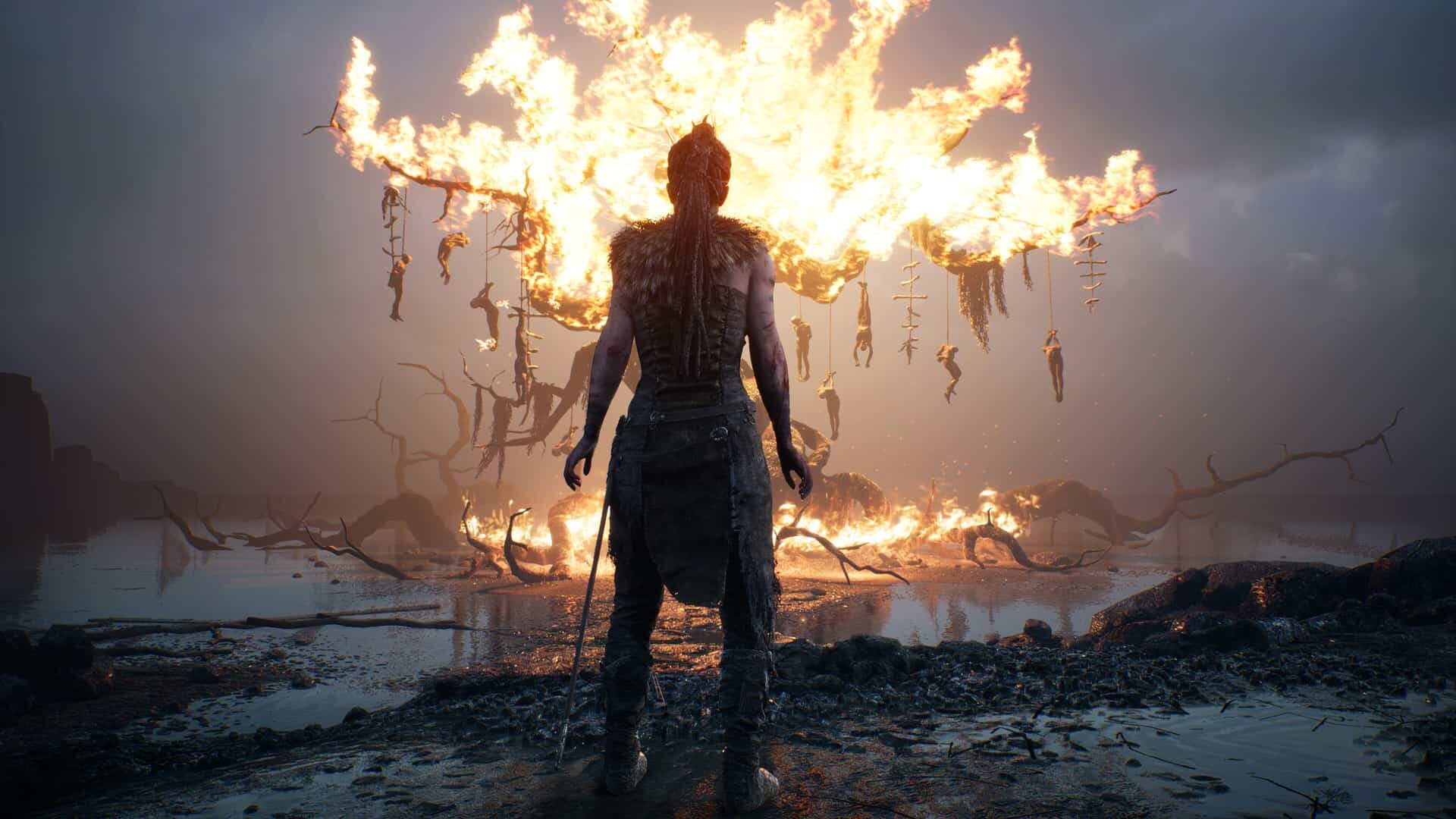
Darkest Dungeon also took this approach, though in Darkest Dungeon it is not quite so specific or nuanced, feeling more like an added RPG statistic multiplier than a true portrayal of mental illness.
An Indie by Any Other Name
Hellblade is also not cheap, priced more towards the “AA” mid-level range between the too often under-priced indie and the exceedingly expensive AAA title. This is completely by design and intentional on the part of Ninja Theory, who want to bring back more of the era of beautifully rendered, high-quality visuals with strong playability that can cover less mainstream concepts and take more risks for a lower than AAA price – games from a bygone era like Timesplitters – possibly my favorite Xbox game (speaking of which, I also really miss the Shadowrun multiplayer online game), Darksiders, Dark Cloud for PS2 and even Bioshock and studios like 989, Lionhead – I really did love that flawed but unforgettable first Fable title – and so on. Hellblade certainly achieves that goal, if nothing else.
In fact I was a little confused when I first saw Hellblade in the Steam indie store. I did a double-take. I bought it with little knowledge going in – little more than sheer curiosity, in fact. I have since done substantially more research on its origins, design and marketing philosophy. But the fact remains that it found me. And I paid the full asking price sight unseen because I wanted something different.
I am not sure I can ultimately recommend Hellblade to gamers looking for a challenging button-mashing action title, given the competition, but for those willing to try something different, it is a deceptively deep title that is worthy of mention and notable for both the things that it attempts and the ones that it does so well.
Hellblade: Senua’s Sacrifice is available via Steam.
[xrr rating=”4.5/5″]
Watch the official trailer for Hellblade: Senua’s Sacrifice below:

